Driving Sustainability: The Role of Recycled Plastic Materials in China's 138th Import and Export Fair 2025
As the world continues to grapple with the challenges of climate change and environmental degradation, the significance of sustainable practices in global trade has never been more prominent. In this context, recycled plastic materials have emerged as a vital component in fostering sustainability, particularly highlighted in China's 138th Import and Export Fair in 2025. According to a recent report by the Global Recycling Foundation, the global recycled plastic market is projected to reach USD 70 billion by 2027, indicating a growing shift towards circular economy models. This transformation aligns with China's commitment to achieving peak carbon emissions by 2030 and carbon neutrality by 2060, thereby paving the way for innovations in the use of recycled plastic in various industries. The inclusion of recycled plastic materials at the Canton Fair is not only a reflection of industry trends but also represents a collective effort to mitigate plastic waste and promote sustainable sourcing, setting a benchmark for future trade events.
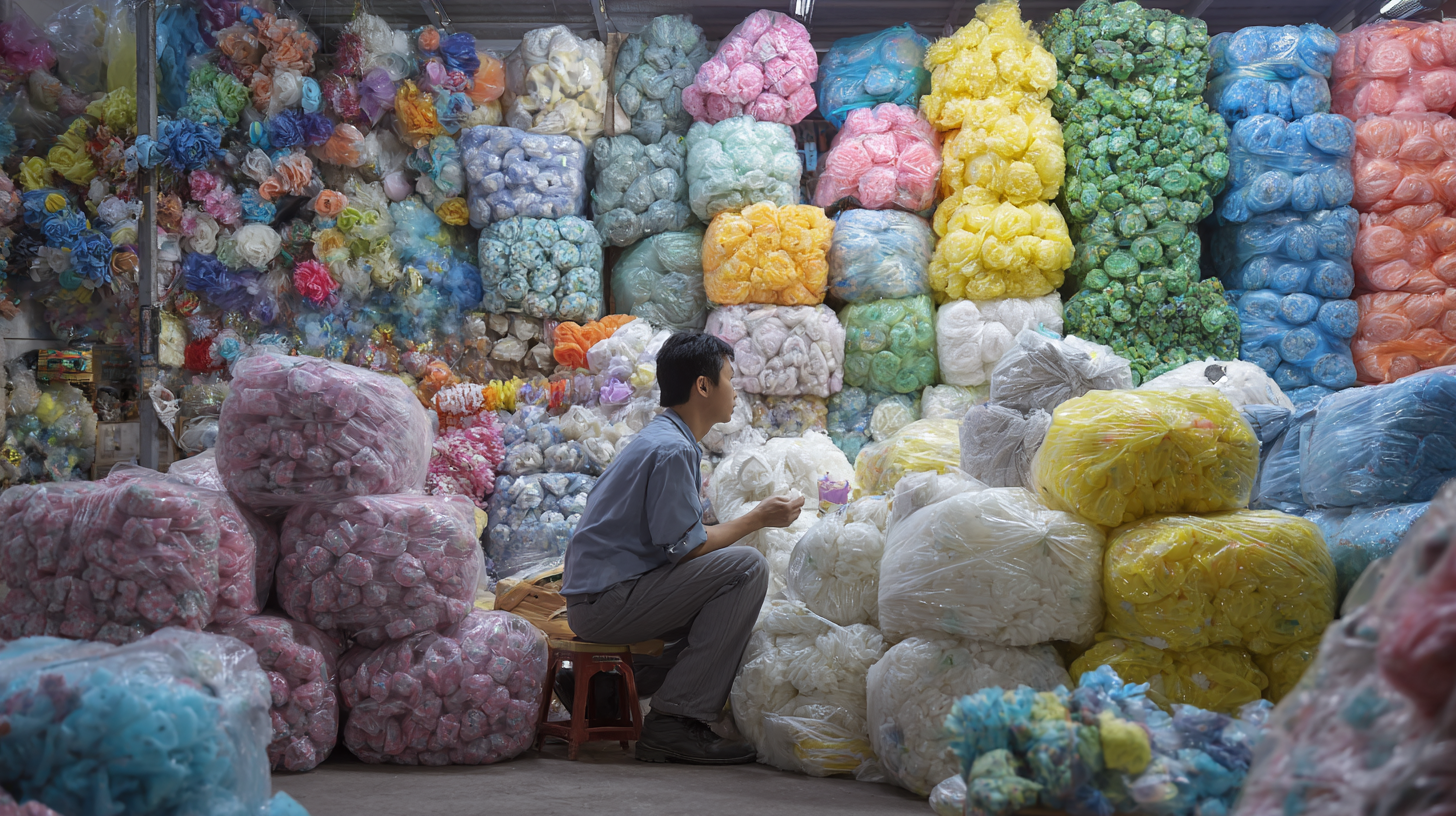
The Significance of Recycled Plastics in Global Trade at the 138th Canton Fair
The 138th Canton Fair, scheduled for 2025, presents an extraordinary opportunity to examine the vital role of recycled plastics in global trade. As sustainability becomes a central theme in international commerce, the fair acts as a platform for showcasing innovative products made from recycled materials. These advancements not only reduce waste but also demonstrate the potential of recycled plastics to meet consumer demands while addressing environmental concerns.
Incorporating recycled plastics into trade opens avenues for businesses to enhance their sustainability profiles. Here are a few tips for navigating this important shift: first, prioritize sourcing from suppliers who utilize recycled materials. This can help ensure that your products reflect a commitment to sustainability. Second, stay updated on the latest technologies in recycling, which can improve the quality and functionality of plastics used in products. Lastly, consider transparent marketing strategies that highlight the use of recycled materials; consumers increasingly favor brands that champion eco-friendliness.
The significance of recycled plastics at the Canton Fair extends beyond just products; it reflects a collective intention to forge a more sustainable future in global trade. By emphasizing the importance of recycled materials, participants at the fair can inspire broader adoption across industries and encourage a shift towards more responsible consumption practices worldwide.
Driving Sustainability: The Role of Recycled Plastic Materials in China's 138th Import and Export Fair 2025
| Category | Recycled Plastic Type | Usage in Products | Market Demand (Tonnes) | Impact on CO2 Emissions (Tonnes) |
|---|---|---|---|---|
| Packaging | PET | Bottles and Containers | 500,000 | 250,000 |
| Textiles | rPET | Clothing and Fabrics | 300,000 | 150,000 |
| Construction | HDPE | Pipes and Eco-friendly Panels | 200,000 | 100,000 |
| Consumer Goods | PP | Household Items | 150,000 | 75,000 |
Innovative Applications of Recycled Plastic Materials in Sustainable Products
The innovative applications of recycled plastic materials are set to take center stage at China's 138th Import and Export Fair in 2025. With the growing urgency for sustainable practices, industries are increasingly leveraging recycled plastics to create eco-friendly products that appeal to environmentally conscious consumers. According to a report by the Global Plastics Alliance, the market for recycled plastics is expected to reach $45 billion by 2026, driven by increasing regulatory support and rising consumer demand for sustainable materials.
At the forefront of this transformation are companies that are pioneering the use of recycled plastics in various sectors, from fashion to consumer electronics. For example, brands are now producing stylish apparel made from recycled PET bottles, enhancing both sustainability and aesthetic appeal. Additionally, the construction industry is embracing recycled plastics in infrastructure development, utilizing materials that meet strength requirements while significantly lowering carbon footprints. The potential impact of these innovations is highlighted by the fact that recycling just 10% more plastic could reduce greenhouse gas emissions by 1.5 million tons annually, underscoring the pivotal role of recycled materials in achieving long-term sustainability goals.
Challenges and Solutions for Promoting Recycled Plastics in China
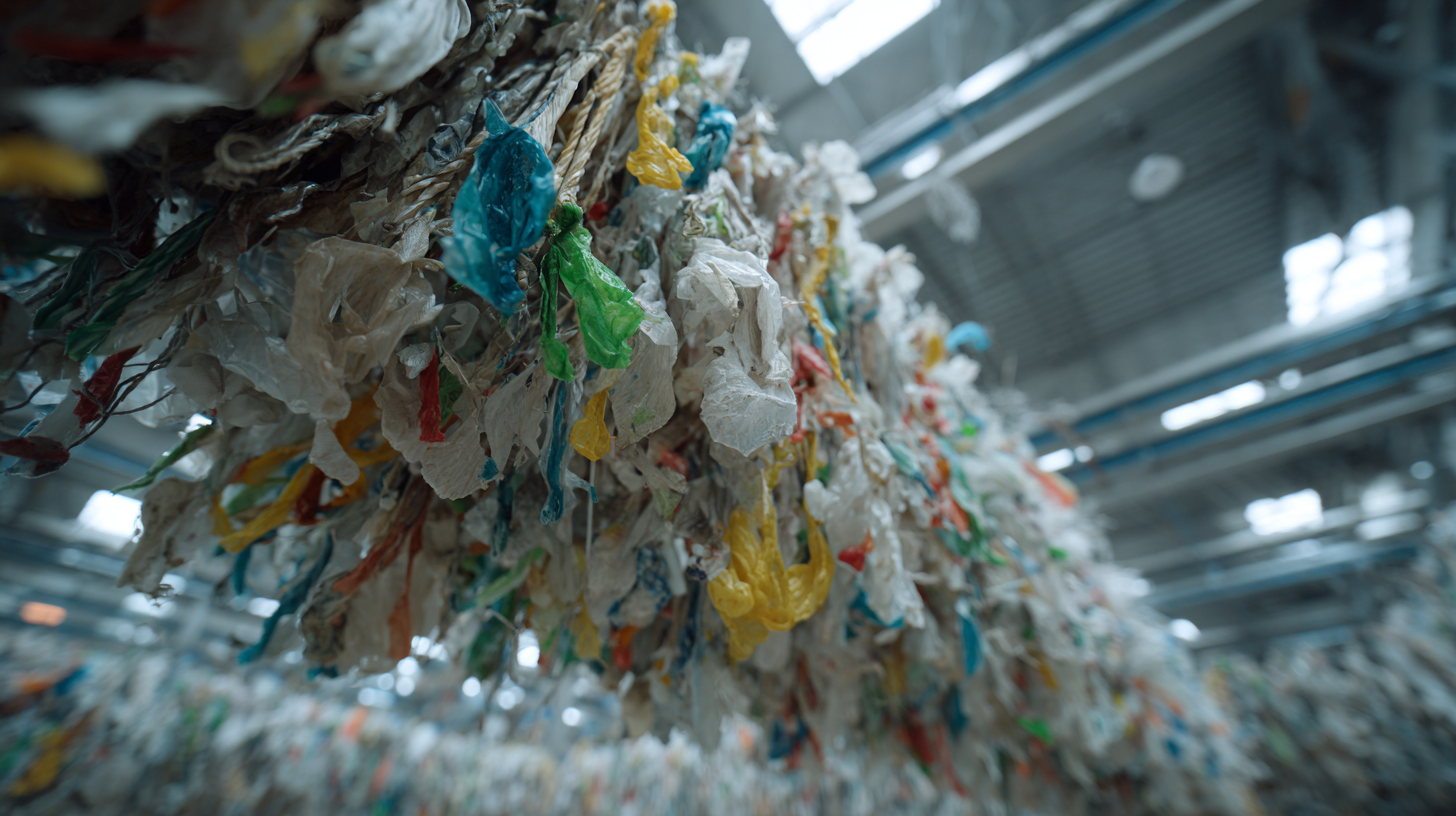 The promotion of recycled plastics in China presents significant challenges that need to be addressed to drive sustainability. According to a report by the China National Resources Recycling Association, the country's recycling rate for plastic materials was only about 30% in 2022, highlighting a gap between potential and actual recycling efforts. One of the primary challenges is the inadequate infrastructure for collection and processing, which limits the availability of high-quality recycled plastics. Additionally, the lack of consumer awareness and market demand for recycled products further complicates the situation.
The promotion of recycled plastics in China presents significant challenges that need to be addressed to drive sustainability. According to a report by the China National Resources Recycling Association, the country's recycling rate for plastic materials was only about 30% in 2022, highlighting a gap between potential and actual recycling efforts. One of the primary challenges is the inadequate infrastructure for collection and processing, which limits the availability of high-quality recycled plastics. Additionally, the lack of consumer awareness and market demand for recycled products further complicates the situation.
To overcome these obstacles, solutions such as enhanced sorting technology and public education campaigns are essential. The use of advanced sorting facilities can drastically improve the quality of recycled materials, making them more appealing to manufacturers. Furthermore, the government could implement incentives for companies that utilize recycled plastics, potentially increasing demand and encouraging innovation in recycling practices. Collaboration between industries, policymakers, and consumers is crucial to create a robust ecosystem that supports the effective use of recycled plastics, thereby facilitating a more sustainable future in China.
Market Trends: Consumer Demand for Sustainable Packaging at the Fair
As the world shifts towards sustainability, the 138th Import and Export Fair in China set for 2025 will showcase the increasing consumer demand for sustainable packaging solutions. With rising awareness of environmental issues, both businesses and consumers are prioritizing eco-friendly materials, particularly recycled plastics. This trend not only reflects a cultural shift but also presents significant opportunities for companies to demonstrate their commitment to sustainability.
Consumers are actively seeking products that align with their ecological values, influencing purchasing decisions and brand loyalty. At the fair, exhibitors featuring innovative recycled plastic materials in their packaging will likely stand out, attracting more foot traffic and interest. This growing demand is not limited to a niche market; it encompasses diverse industries, from food and beverage to cosmetics, as companies aim to reduce their carbon footprint.
Tip: Brands looking to leverage this trend should consider integrating recycled materials into their packaging designs and communicate the sustainability measures taken to their audience. Transparency about sourcing and production can significantly enhance brand reputation.
Tip: Engage with customers through educational campaigns about the benefits of recycled plastics, as informed consumers are more likely to choose sustainable products. This approach not only elevates brand image but also fosters a community invested in sustainability.
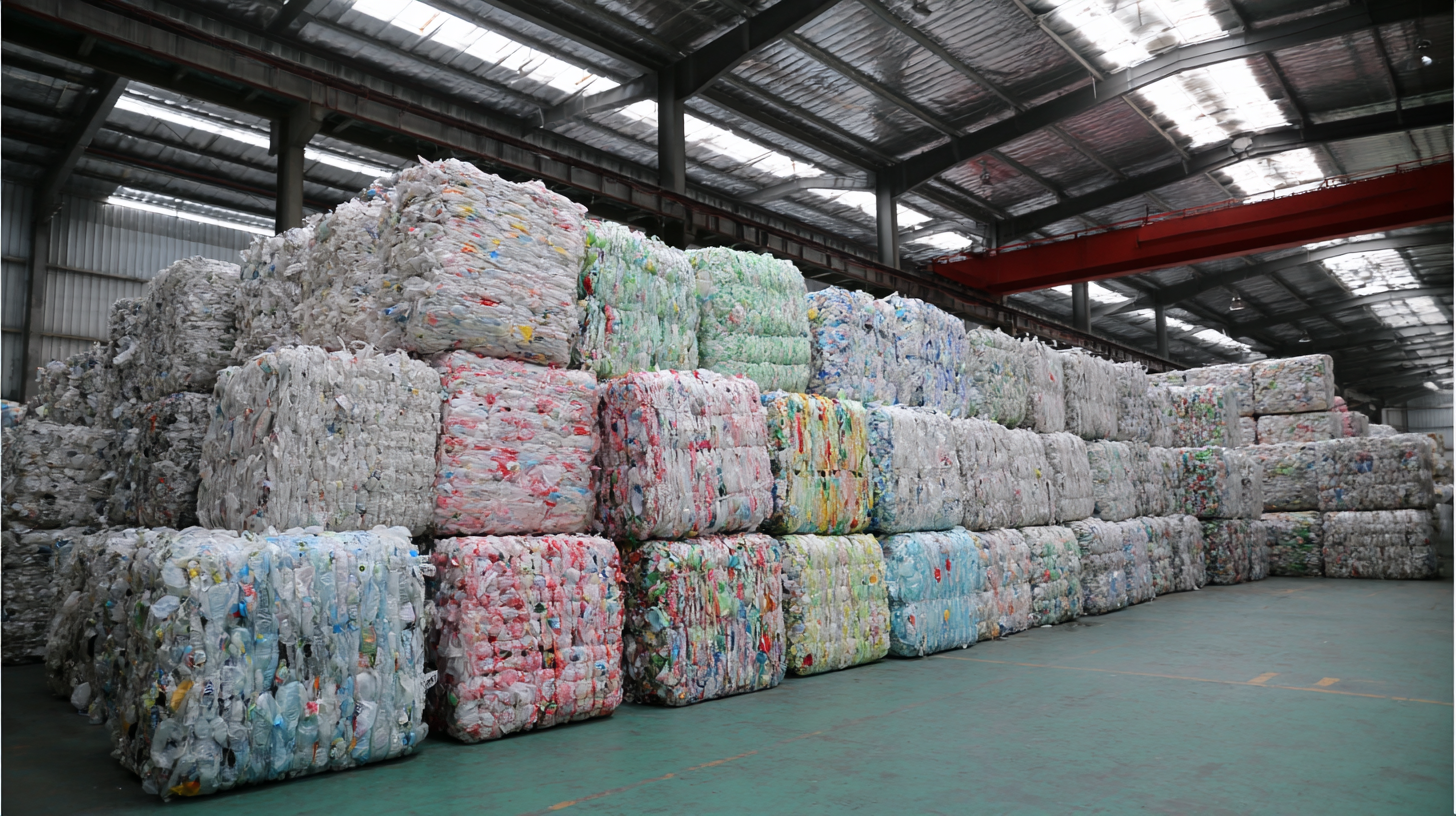
Collaboration Opportunities for Businesses to Enhance Recycling Efforts in China
As the world shifts towards sustainable practices, China's 138th Import and Export Fair in 2025 presents a pivotal platform for businesses to explore collaboration opportunities in enhancing recycling efforts. With over 60 million tons of plastic waste generated annually in China, innovative solutions are needed to alleviate the environmental burden. According to the China Plastic Waste Management Report 2022, only 30% of plastic waste is currently recycled. This highlights the urgent need for partnerships across industries to improve recycling rates and develop sustainable practices.
To drive successful collaborations, businesses can implement strategies such as establishing joint ventures focused on waste management technologies or creating supply chain networks that prioritize recycled materials. Engaging in community-based recycling initiatives also fosters brand loyalty and enhances corporate responsibility. Companies like Alibaba have launched programs that incentivize consumers to recycle, showcasing a model for others to follow.
Tip: Consider developing a comprehensive recycling policy within your organization that outlines clear goals and timelines for using recycled materials in your products. This can not only enhance your brand image but also attract environmentally-conscious consumers.
Effective collaboration can also extend to educational initiatives aimed at raising awareness about recycling. Participating in local workshops or partnering with NGOs can amplify the reach of these programs. By working together, businesses can not only contribute to a circular economy but also uncover new market opportunities grounded in sustainability.
Tip: Regularly assess your supply chain and identify potential partners who prioritize recycled materials. This can lead to innovative product development and improved sustainability credentials, which are increasingly demanded by consumers.
Related Posts
-
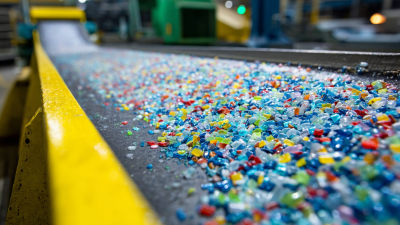
How to Transform Recycled Plastic Materials into Innovative Eco Friendly Products
-
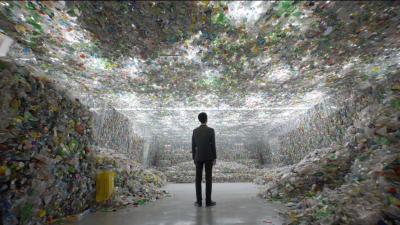
Exploring the Future of Recycled Materials at the 138th Canton Fair 2025
-
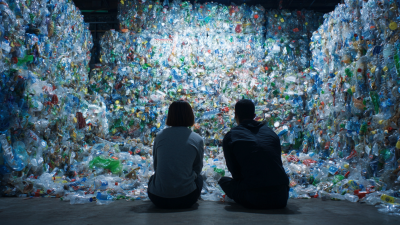
How to Achieve a Sustainable Future with Recycled Plastic Innovations
-
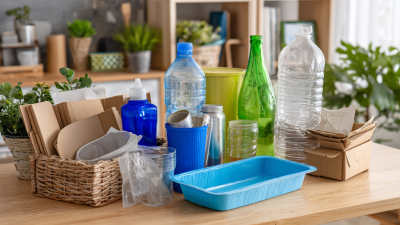
What is the Impact of Recycling from Home on Global Waste Reduction and Sustainability
-

How to Transform Recycled Plastic Bottles into Sustainable Home Decor
